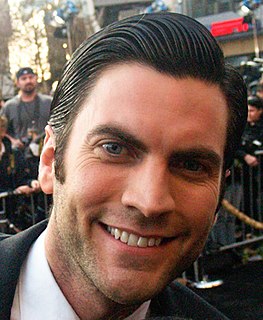Top 30 Quotes & Sayings by Wes Bentley
Explore popular quotes and sayings by an American actor Wes Bentley.
Last updated on April 15, 2025.
A lot of actors will complain about the green screen work, but what you do get to do is what you probably should have learned, from the beginning, on stage. You have to create it in your mind and really go there to bring it. Part of the fun of acting is those challenges. You feel goofy, but sometimes that's a good feeling.
The first year at Juilliard is, I think, the best. And partly why I left - I only went one year. Partly why I felt okay leaving is that the most important elements, I believe, happen in the first year. What they do is they tear down all your conceptions of acting, and they take away all your tricks that you've learned.
As far as the creative side, the more I do this, the more I know that it's all about the writing. We don't always celebrate that enough, but without the writing, you can't do much. You got on a film sometimes, and it's sort of half-written, and they expect and think that the actor's job is to bring the extra part and the good part. It's not.
I think the greatest gift actually acting is that I have a true fascination and love for people, and the way they are, and all the choices they made in life and all the different paths they took. I feel like acting gives me an opportunity to dig a little bit into that. That's great because it's eye-opening and it makes you an open person.
You want to have the experience. As far as the creative side, the more I do this, the more I know that it's all about the writing. You got on a film sometimes and it's sort of half-written, and they expect and think that the actor's job is to bring the extra part and the good part. It's not. We're good at saying what other people have written, but for the majority of it, that's about it, comedians aside. It's all in the writing. Whether that's dialogue or character, or whatever, it doesn't matter. As long as they've done something special, than you can do something special.




















